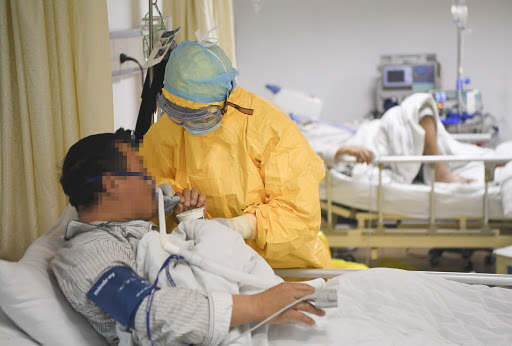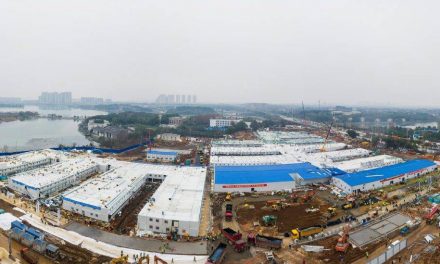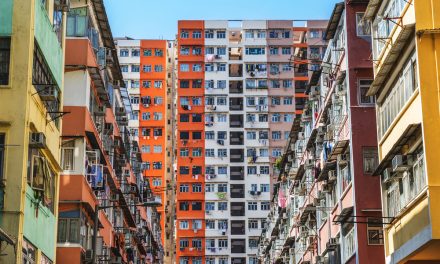Chinese experts confirm antimalarial drug is effective on Covid-19 infection
Chinese experts, based on the result of clinical trials, have confirmed that Chloroquine Phosphate, an antimalarial drug, has a certain curative effect on the novel coronavirus disease (Covid-19). The experts have “unanimously” suggested that the drug be included in the next version of the treatment guidelines and applied in wider clinical trials as soon as possible. Chloroquine Phosphate, which has been used for more than 70 years, was selected from tens of thousands of existing drugs after multiple rounds of screening. According to Sun Yanrong, deputy head of the China National Center for Biotechnology Development, the drug has been under clinical trials in over 10 hospitals in Beijing, as well as in south China’s Guangdong Province and central China’s Hunan Province, and has shown fairly good efficacy. So far, no obvious serious adverse reactions related to the drug have been found among the over 100 patients enrolled in the clinical trials, she said. (The Star Online)
Malaysia may spend up to RM15bil for fiscal stimulus package
The government is expected to spend up to RM15 billion via a fiscal stimulus package to stimulate Malaysia’s economy and mitigate any adverse repercussions from the coronavirus (Covid-19) outbreak and other external uncertainties. Malaysia will be one of the first countries in the region to introduce such a plan following the outbreak. The extra government spending was imminent as the private sector was taking a back seat following the fallout from the outbreak in particular, economists said. Hence, more money in public hands would help spur the local economy. It was reported that Prime Minister Tun Dr Mahathir Mohamad would announce a stimulus package on February 27 to help the economy, which expanded at its slowest pace in a decade in 2019. It was neither a new budget nor part of 2020 Budget, Finance Minister Lim Guan Eng said. China, Hong Kong and Singapore have also pledged extra fiscal stimulus to counter the economic hit from the coronavirus. (NST Online)
SStwo Mall to reopen as healthcare centre
SStwo Mall in Petaling Jaya, which shut down five years ago, is finally set to reopen with Life Care Diagnostics Medical Centre as its new tenant. Mall owner DK Group of Companies will sign a MoU with the tenant next Tuesday to transform the mall in the affluent SS2 neighbourhood into D’LifeCare Mall. D’LifeCare will offer an all-rounded healthcare service under one roof, ranging from preventive medical check-ups and prescriptive specialist consultations to curative surgeries. It will provide professional medical and diagnostic solutions. Life Care Diagnostics currently operates at one location in Bangsar South, Kuala Lumpur. It is a private medical care provider offering a wide range of medical consultation services. SStwo Mall permanently closed in March 2015 due to poor performance after operating for only 4½ years. (The Edge)

Retailer’s associations seek rental rebates in wake of Covid-19 outbreak
Malaysian retailer associations are appealing to all shopping malls and shophouses’ landlords and owners to give rental rebates by 30% to 50% from February 2020 for the next 6 months to help tenants ride out the effects of the Covid-19 outbreak. In a joint statement, the Malaysia Retailers Association (MRA), Malaysia Retail Chain Association (MRCA), Bumiputera Retailers Organisation (BRO), Asean Retail-Chains & Franchise Federation (ARFF) and Branding Association of Malaysia (BAM) said retail businesses have been greatly affected. Many association members have reported as much as a 50% drop in sales, with some expecting revenue to further drop by more than 80% over the next three months. Retail outlets also incurred further social responsibility costs such as cleaning and hygiene services. (The Sun Daily)
Malaysia top plastic ocean polluter in Asia, says WWF
An analysis of Asia’s worst ocean polluters shows Malaysians are the biggest individual consumers of plastic packaging, green group WWF said, urging the government to limit single-use plastics and work with companies to fund a recycling push. The WWF report on plastics looked at China, Indonesia, Malaysia, the Philippines, Thailand and Vietnam – which contribute 60% of the estimated 8 million tonnes of plastic that enter the world’s oceans each year. It focused on household consumption of plastic packaging – the plastic most likely to end up in seas – and found that 27 million tonnes were consumed across all six nations in 2016. Meanwhile, carbon emissions associated with plastic – from production to burning – reached 860 million tonnes in 2019, greater than the annual emissions of Thailand, Vietnam and the Philippines combined. Malaysia ranked highest among the six countries analysed in terms of annual per-capita plastic packaging consumption, at about 16.8kg per person, followed by Thailand at 15.5kg. The report noted that Malaysians consumed the most plastic because they were among the wealthiest, with plastic packaging from food delivery and supermarket products among the main contributors. (The Star Online)





